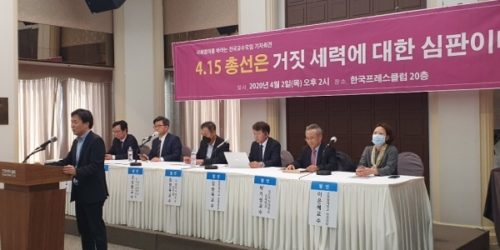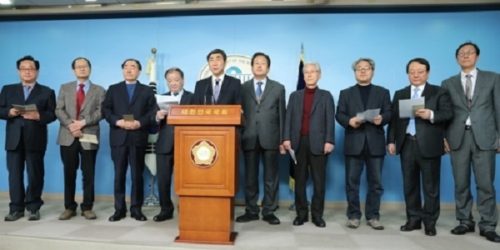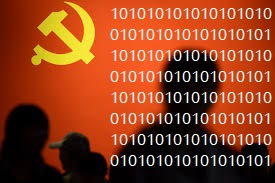South Korean Election Commission Early Vote Count Greater than Number of Observed Voters
2024-4-5, Tara O
South Korea’s general election is on April 10, 2024. This election will select 300 lawmakers for South Korea’s National Assembly, which is the Korean equivalent of the U.S. Congress. Election day in South Korea is a national holiday, so people do not have to worry about getting to the voting locations in time after work. Despite this, “early voting” was introduced in 2010. This year, the early voting days are April 5 and 6, 2024 from 6 a.m. to 6 p.m. in 3,565 early voting locations nation-wide. No prior notification is needed to vote early and the voters can cast their ballots at any of the early voting centers across the country.
Early voting is an extremely controversial topic in South Korea, along with the use of electronic vote counting machines. The National Election Commission’s count is displayed on a monitor of a computer that is connected to the NEC’s central server, which many voters do not trust.
On April 5, 2024, early voting began, and within hours there were numerous complaints of the National Election Commission reporting inflated numbers of votes cast at various early voting centers relative to observed voting at the polling locations.
Daemyeong 9-dong Neighborhood, Nam District, DAEGU (대구남구 대명9동), 2024-4-5, 8:10 a.m.
An election observer counted 95 voters by 8:10 a.m. on April 5, 2024, according to lawyer Park Ju-hyun (박주현). He then asked the election official on site for the number of votes tallied. However, the NEC server-connected computer monitor (which is televised for the viewers to see) displayed a different number. What the computer monitor showed was 137 local resident ballots counted and 30 non-local residents ballots counted, for a total of 167 ballots counted. (3:42) How can this be? 167 – 95 = 72 additional ballots. It shows that 72/95 = 76% more ballots counted in the NEC system than the number of voters who actually went to the early voting center.
Ballot Counts for Residents Only
| Time | Election Observer | NEC Server | Difference | % |
| 8:10 a.m. | 95 | 137 | 42 | 44.21% |
Ballot Counts for Both Residents and Non-residents
| Time | Election Observer | NEC Server | Difference | % |
| 8:10 a.m. | 95 | 167 | 72 | 75.79% |
The election observer at Daemyeong 9-dong neighborhood, Nam District in Daegu City sent this hand-written note to the local NEC Chairman to investigate the situation.
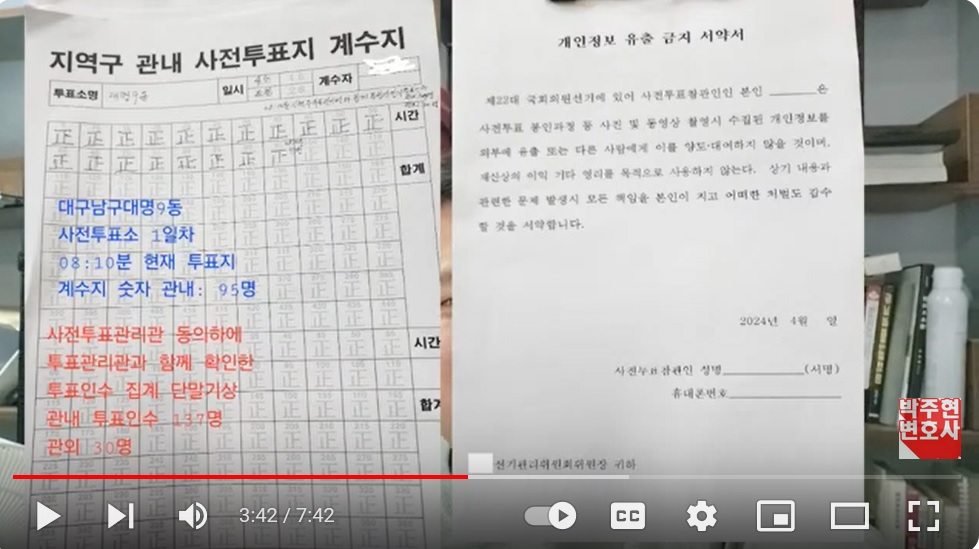
This is the situation only 2 hours into the 2-day early voting window.
Daegu’s Daemyeong 9-dong Neighborhood is not the only place where extra ballots were shown in the NEC system, but not observed at the early voting centers.
Where does the NEC’s central server ballot numbers come from and why are they much higher than the actual observed voters (and their ballots) on site?
Seongbuk District, SEOUL (서울 성북구), 2024-4-5
An election observer noted that he counted the ballots each time a voter placed his/her ballot in the ballot box. Every 1-3 hours, he compared the numbers to the numbers from NEC server provided to him by the election official on site, and discovered major discrepancies: (0:20)
| Time | Election Observer | NEC Server | Difference | % |
| 7 a.m. | 115 | 116 | 1 | 0.87% |
| 10 a.m. | 630 | 689 | 59 | 9.37% |
| 11:30 a.m. | 945 | 1030 | 85 | 8.99% |
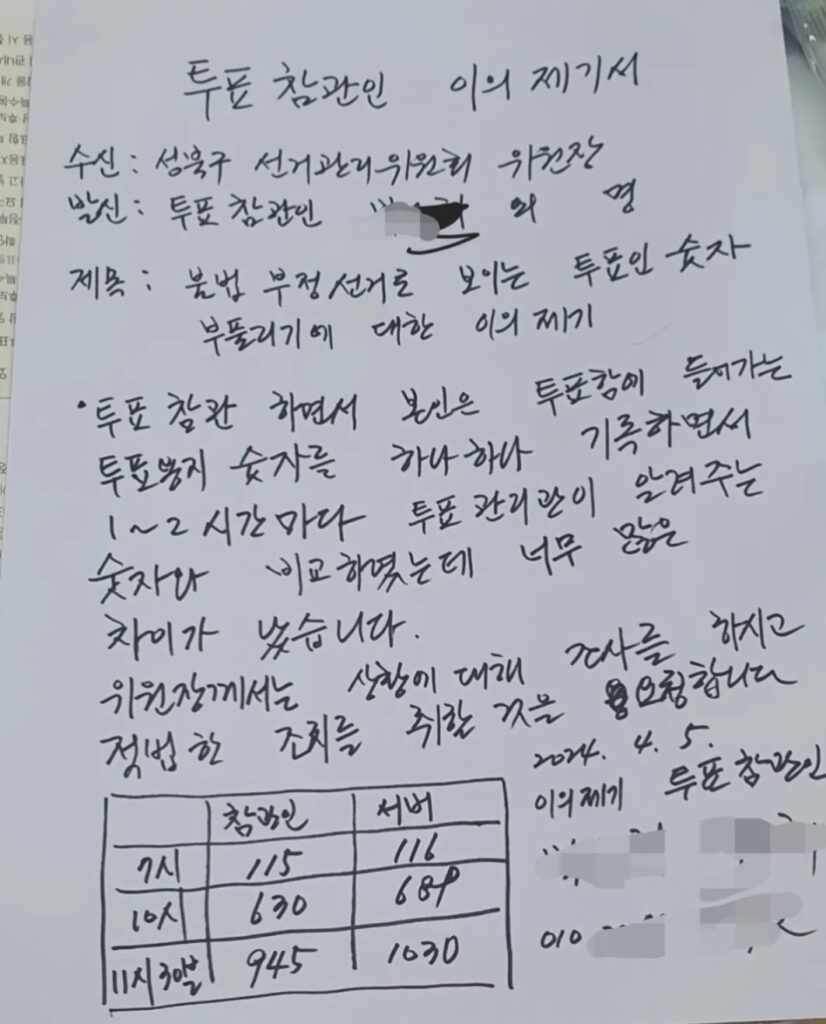
The election observer’s hand written note to the election commissioner in charge of the Early Voting Center in Seongbuk District of Seoul, 2024-4-5.
Jungwang 2-dong neighborhood, SHIHEUNG City, Gyeonggi Province (경기도 시흥시 중왕2-동), 2024-4-5
In Jungwang 2-dong neighborhood of Shiheung City in Geyonggi Province, an election observer noted more discrepancies as follows: (2:03)
| Time | Election Observer | NEC Server | Difference | % |
| 6:00 – 8:00 a.m. | 208 | 208 | 0 | 0.00% |
| 8:01-10:08 a.m | 499 | 523 | 24 | 4.81% |
| 10:09-11:15 a.m. | 663 | 697 | 34 | 5.13% |
| 11:16 a.m.-12 noon | 748 | 797 | 49 | 6.55% |
Shinjeong 1-dong neighborhood, Nam District, ULSAN City (울산 남구 신정1동), 2024-4-5, morning
In the Shinjeong 1-dong neighborhood of Nam District in Ulsan City in southeast Korea (near Busan), an election observer noted more discrepancies in the ballot numbers counted. The election observer noted that the NEC server-connected computer monitor showed 40 more ballots counted at 9 a.m., 58 more by 9:30 a.m., and 96 more by 11 a.m.
| Time | Election Observer | NEC Server | Difference | % |
| 11 a.m. | 594 | 690 | 96 | 16.16% |
At 11 a.m, the NEC’s computer monitor connected to the NEC’s server showed 690 ballots counted, while the election observer counted 594. (2:49)
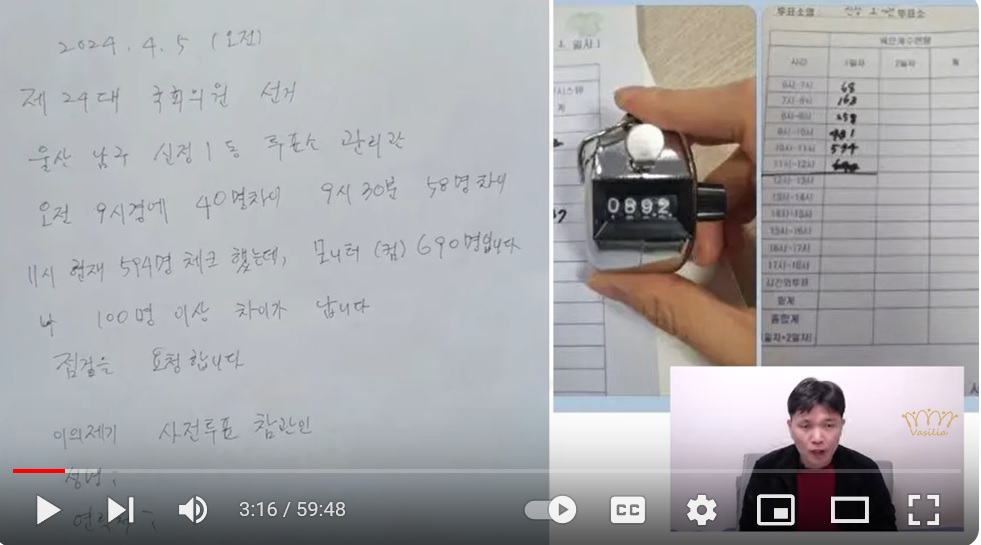
Gangseo District, Seoul, 2024-4-5
In Gangseo District in Seoul, an election observer tried to take a photo of a barcode on the ballot (not yet voted) that was missing the numbers below the barcode, as evidence of a strange ballot. The NEC official told her she couldn’t take photos (legally she can) and forced her to leave the premise.
As she walked out of the building, she asked the policeman who was just outside the early voting station. He checked his cell phone and told her that she needed to leave. She asked to see what he read on the phone. He showed it to her. It said taking photos is a violation of Section 166 of the election law, that taking photos illegally can be fined up to ₩4,000,000 (~$3,000), and that the record of it can prevent employment with the police in the future.
In her phone conversation with Lee Sang-ro (이상로), a veteran journalist formerly of MBC and a professor, on his YouTube channel, she shared what she discovered about the law. It turns out that taking photos inside the voting centers, as long as it is not in the voting booth where the actual marking of ballots occurs, is allowed by law, so she did not do anything illegal. (11:13) Thus, both the NEC official and the policeman removed her from the early voting center by giving her false information. Until January 2016, it was legal to take photos inside the voting booth, but for some reason, a new clause was added to forbid taking photos in the voting booth.
On Line Comments regarding the situation:
– The Republic of Korea is in big trouble. We can’t hold the election as it is. Stop voting altogether. First, investigate the NEC. Arrest Roh Tae-ak (노태악) (the National Election Commission Chairman and simultaneously a Supreme Court Justice) immediately.
– Who would investigate? They’re all in it together. The country is rotten and it is on its way to ruin. I don’t see any hope.
– What are President Yoon and Han Dong-hoon (de facto leader of the People Power Party) doing? Is this happening only in those places? Stop the early voting right away.
– Dismantling the National Election Commission is the answer. Arrest and investigate.
– What kind of country is this? What do you mean an advanced country? It’s embarrassing. This country is still at the level of 70 years ago.
– To the National Election Commission officials!!! Why do we have fraudulent elections??? I believe there must be some righteous public servants who would protect our suffrage. Please prevent fraudulent elections~~~
– The corrupt National Election Commission must be dismantled and punished for its crimes!!
– Hahahaha, did it happen just once or twice????? It’s normalized now, hahahaha. The people have already given up hahahaha.
– So (they’re saying) they’ll stuff (the ballots into the ballot boxes) as many as the inflated numbers. Eyes open, but blind People Burden Party (a pejorative name for People Power Party for not taking any measures to investigate or prevent this situation)
– Fraudulent election was expected, so why didn’t the president and Han Dong-hoon proactively do anything?
– Now I realize what is going on. I knew long time ago about ballot count inflation, but now I know why the National Election Commission insisted on printing the (signature-equivalent) stamps (on the ballot before the voters cast votes), and discarded (the method of the National Election Commission official stamping his/her personal stamp on each ballot real time at the site after the voters vote) the personal stamp.
– So they’ll make fake ballots equivalent to the inflated numbers…
– They already knew that the election fraud prevention citizen groups would monitor carefully, but they are bulldozing through. They must know something.
– The early voted ballots must be counted on site (before removing and storing them for days with questionable security) after the end of voting to prevent election fraud.
– I’m dumbfounded (by the politicians, the media) who encourage early voting.
– I had a lot of expectations and hopes after President Yoon was elected, but nothing has changed. It seems election fraud is here to stay forever.
– Shouldn’t the election be stopped?
More problems expected
The early voting ballots will be stored for 4 to 5 days, and the method of transportation for the ballots, the lax security of the storage spaces for the ballots, and what appears to have been tampering with the security tapes on the ballot boxes have been problems in the past, especially in April 2020 when the Democratic Party of Korea, then ruling party, won in a major landslide election.
Furthermore, the National Election Commission had been hacked by North Korea multiple times last year. After the National Intelligence Service notified the National Election Commission of the hacking, it refused inspections and investigations. After a nepotism scandal at the National Election Commission was uncovered, however, it agreed to a limited joint inspection by the National Intelligence Service, Korea Internet & Security Agency (KISA) and National Election Commission. They inspected the National Election Commission system from July 17 – September 22, 2023, and discovered the National Election Commission systems were indeed hackable.
The inspection showed that the ballot count results could be manipulated and there was a risk of a mass leak of voters’ personal information. The inspection showed that attackers were also able to steal the signature-equivalent seals of the National Election Commission (blue seal) and the polling stations’ signature files used on the early voting ballots (which are different than the day-of voting ballots). The National Election Commission repeatedly stated its system is not not able to be hacked, although the evidence show otherwise.

